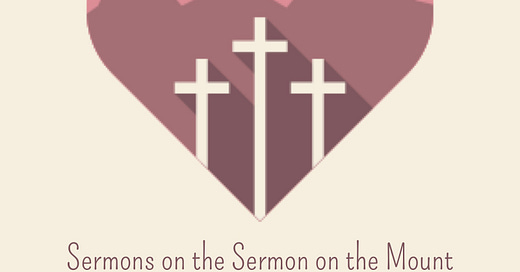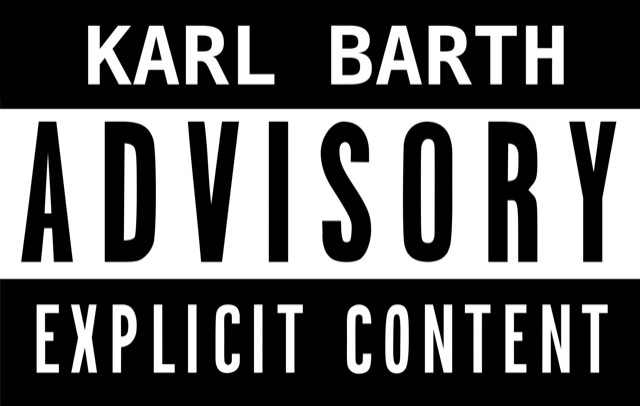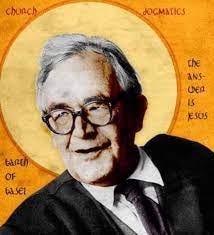Matthew 5.7
About a month ago, a former parishioner of mine, Dave, emailed me and asked me to respond to a theological question: “Why doesn’t God intervene in the world? There’s a senseless and horrific war waged against Ukraine. There was yet another mass shooting— 21 kids murdered! You know it’s just a matter of time before another black man is gunned down by racist cops. Why doesn’t God act in the world?”
Dave is a persistent guy. When I was his pastor, Dave was always on my case to register for an Emmaus retreat weekend or volunteer with Kairos Prison Ministries. Admittedly, there’s something about his persistence that brings out my Enneagram 8 obstinance. Whenever Dave asks me to do something, my initial, reflexive response is not to do it.
So I didn’t reply to his email.
But also, I didn’t respond because it’s not the kind of question that can be adequately addressed by typing out a quick answer on a smart phone.
I never answered him, but I did make several attempts that remained unfinished and filed in the drafts folder of my inbox.
Dear Dave, my first stab at a response begins.
I apologize for the belated reply. Then again, you no longer pay my salary so you’re at the mercy of my timetable. As a pastor who’s baptized more than a few stillborn babies, I can certainly identify with the pathos that provokes such a question. And as someone with incurable cancer, I’ve had more than a few moments of feeling sorry for myself and, even when I don’t, every day nevertheless feels like Ash Wednesday, which is to say, you’re not the only one to question the Almighty’s job performance. It’s like the Woody Allen line, “If there’s a God, he’s basically an underachiever.”
But is he? I’m not so sure.
Or rather, I’m not certain that God is the one who has failed to live up to the demands of the job description.
Now that I’m no longer appointed as your pastor, I can confess to you that you bring out the contrarian in me. I’m tempted, therefore, to answer your question by heeding Annabeth Schott’s advice to Leo McGarry in episode one of season seven of the West Wing. Annabeth tells the Chief of Staff turned Vice Presidential candidate, “If you don’t like what they’re asking you, don’t accept the premise of the question.”
The question “Why does God not intervene in the world?” is a question that reflects the presumptions of a post Constantinian understanding of Christianity. I realize “post-Constantinian” is a mouthful, but I’m doing this pro bono. You’ll have to do some work too. Constantine, you may recall, is the Roman emperor chiefly responsible for the creed we profess in worship— a creed, you may have noticed, that omits a single mention of the sole subject of Christ’s message and ministry, the Kingdom of God.
Read the Gospels again. Christ seldom ever speaks of himself in the Gospels. In word and deed, Christ is nearly always announcing the Kingdom, yet the creeds make no mention of the Kingdom. This is not an accidental omission. In the fourth century, Constantine realized it would behoove his hold on power to establish Christianity as the religion of the empire. Whereas prior to Constantine it took significant conviction to be a Christian, after Constantine it took considerable courage not to be a Christian. Thus, what had been an alternative way of life in the world became, with Constantine, a religion that awaited the life to come. Witness got transmuted to inwardness. Salvation got transferred from a material reality to a spiritual realm. Jesus got transfigured from Lord to Secretary of Afterlife Affairs. And faith got translated from public obedience to the Kingdom Christ had brought near to private belief for access to the Kingdom of Heaven.
I know you asked a theological question and I’m instead giving you a historical answer, but it’s crucial you understand that your question about God’s apparent absence in the world is historically and politically determined. After Constantine, once the empire was allegedly Christian, the Church’s vocation as God’s visible alternative in the world was no longer intelligible. Constantine made it possible, in other words, for followers of Christ to ask questions like “Why doesn’t God act in the world?” without appreciating that they themselves are the way God has elected to act in the world.
We’re about to begin a long sermon series through the Sermon on the Mount. We mishear Christ’s sermon and we misunderstand the nature of discipleship exactly to the extent we fail to notice that for Christ in his sermon the visibility in the world of the community of disciples just is the visibility of God in the world.
Notice how the Old Testament never asks the question in the manner we so often ask it. Israel does not ask the generalized question we so often ask, “Where is God?” Israel does not ask such a question because Israel understood— their very existence as Israel was a perpetual reminder to them— that they were the way God had chosen to be at work in the world.
I recently read the memoir of F. Kefa Sempangi, who founded the Presbyterian Church in Uganda during the years when the dictator Idi Amin was in power. Following an Easter service in 1973, a number of Idi Amin’s Nubian assassins followed the preacher back to the sacristy and closed the door behind them. “We are going to kill you for disobeying Amin’s orders,” said the captain. “If you have something to say, say it before you die.”
“From far away I heard a voice, and I was astonished to realize that it was my own. “I do not need to plead my own cause….I am a dead man already. My life is dead and hidden with Christ. It is your lives that are in danger, you are dead in your sins. I will pray to God that after you have killed me, He will spare you from eternal destruction.”
The leader stared at Sempangi without speaking. Then he lowered his gun and said, “Will you pray for us now?”
“Yes, I will pray for you.”
And he did.
“When I lifted my head, the men standing in front of me were not the same men who had followed me into the vestry. From that day forward, converted by the mercy of Christ, the gunmen vowed to protect me from Amin’s assassins.”
In no small part, Dave, the work of faith is to discipline ourselves by approaching every question from no other place but God’s self-disclosure in Christ. This means we answer a question such as your question not by appealing to general principles or philosophical speculation and not even by turning to the Bible broadly. We start with Christ. It may not yield as thorough or as satisfying an answer as you would prefer, but what we discover in Christ is that we possess no answer to the question about God’s intervention in the world apart from lives like F. Kefa Sempangi— apart from lives, I should add— like yours and mine.
“Peace,” I wrote, “Jason Micheli.”
(Mount of Beatitudes)
I thought it not a half bad response to Dave’s question. I even thought it was true. I was about to send my reply back to Dave when I received another email from Dave— I told you he was persistent— reminding me that Dave still had not received an answer to his theological question. Being the wise, spiritually mature pastor you see before you, I mumbled to my computer screen, “I don’t even work for you anymore.”
And I filed the email in my drafts folder instead of sending it.
When I came back to Dave’s question about a week later, my first response felt stale to me, the sort of incomplete cringe-factor I feel over every old sermon. Rather than edit what I’d already written, I attempted to start over again. I began this time with a story— not the story of F. Kefa Sempangi but the story of Tomás Borge.
Dear Dave, I began again.
I apologize for the belated reply. I must’ve missed your initial email.
Actually, I did see your email and I even wrote you what I thought was a pretty sharp response but then I decided not to send it. You know how Paul says the Law elicits the opposite response from what it exhorts?
You might have the same effect on me, Dave; bless your heart :)
I was just reading a remarkable story about man named Tomás Borge. He was one of the original founders of the Sandinista National Liberation Front. In 1976 soldiers loyal to the Somoza dictatorship captured Borge and his wife and severely tortured them for two years. Years later, after the overthrow of the regime, Borge was serving as the Minister of Interior when he left his government office and walked past a prisoner being brought to trial. Borge immediately recognized him as the man who had tortured him.
Borge looked the guard straight in the eye and asked him: “Do you recognize me?”
The guard answered: “No.”
Borge insisted: “Look at me! I was one of those you tortured! And now you will see what the Revolution will do with people like you. Shake my hand! I forgive you.”
In his book Christianity and Revolution, Borge writes, “I remember that when we captured these torturers I told them: “The hour of my revenge has come: we will not do you even the slightest harm. We will show you mercy.”
No doubt you will think Borge’s story an odd way to go about answering your question, but the most faithful way I can think to begin to answer your question is by reminding you that what sets Christians apart is our conviction that God has intervened in the world in the most immediate manner. We call God’s intervention incarnation. We believe God put on skin, came among us, and spoke his will to us through the sun-chapped lips of a first century Jew from Galilee.
That the fullness of God was pleased to dwell in Jesus means that God wants to be worshipped in no other way but as Jesus. And this means God wants to be known in no other way but as Jesus. Therefore we approach every question, Dave, including your question about God’s activity in the world, not from first principles but from the particular child born to Mary.
By starting with Christ, we quickly discover that, as Christians, we do not have answers or explantations for the suffering and evil of the world. We instead have a God who suffered the evil of the world. And this God has us, the community he creates from the followers he calls, the followers he calls to be his mercy in a world of hostility, to be his peace in a world of war, to be hope in a world without it.
Just as God assumed a particular body in Mary’s womb so too does God continue to assume a particular body, the Body called Church. By starting with Christ, then, we’re left with no more truthful answer to your question than that the Church is God’s intervention in the world. We’re not playing around when we say, “This is the word of God for the People of God” or “The body of Christ given for you” or “In the name of Jesus Christ, you are forgiven.” Notice the way Jesus puts the beatitudes in the present tense. That Jesus announces that the merciful are blessed not they will be blessed signals that the transformed world has begun. The Kingdom has come near, which means that in his Sermon on the Mount, Christ is not issuing general advice for all people anywhere. He’s creating the form his body will take after his resurrection and ascension.
I’ll say that again in case you glossed over it:
In his Sermon on the Mount, Christ is creating the body he will incarnate in the world, which means we should see members of that body, witnesses like Tomás Borge, not as saints so much as sacraments— tangible, visible incursions of the crucified God into a suffering world. This is what Dietrich Bonhoeffer means when he writes, “The primary confession of the Christian before the world is the deed which interprets itself.” Here’s a fact you may not know: when the ancient church fathers wished to explicate the incarnation, the word they used was economy.
Christ and his Body the Church are God’s economy.
That is, we are the way God manages the world.
I wasn’t quite sure where to go from there in my response or how to end my email to Dave so I filed it away in my drafts folder, determined to come back to it later that day. But then Dave pinged me again that afternoon to RSVP his attendance at a mission team dinner at my house. “PS,” he added, “I still have not received a response to my theological question.” And being the wise, spiritually-mature person you see before you, I mumbled some four-lettered obstinance and decided to leave the draft unfinished.
I came back to Dave’s question a couple of weeks ago. He’d signed up to join our mission team, and I knew I would see him on the reservation at Fort Apache. There would be no way to avoid his question there so I figured it would be easier to get a response out of the way.
Dear Dave,
I’m terribly sorry for the belated reply. I was going through my spam folder just now and discovered your emails. I regret having missed your messages.
For some reason your question made me think of Judy Scott. There have been many such stories so you may have forgotten the name. Seven years ago Judy Scott’s son, Walter, was shot in the back by Charleston cop Michael Slager eight times as Walter fled from the officer. Judy Scott’s response to her son’s murder made headlines.
Remarkably, on Anderson Cooper 360, Judy Scott told the host that in spite of her deep grief for her murdered son, she had nothing but mercy for officer Michael Slager.
“I feel forgiveness in my heart,” she said.
I think the incarnation teaches us that we have no answer to questions about God’s activity in the world apart from disciples like Judy Scott embodying for the world Christ’s Sermon on the Mount. According to Bonhoeffer, this is what it means to be set free from the Law. To be freed from the Law does not mean we’ve been given license to do whatever we want but rather now our obedience is to a person. We obey the Living Christ who calls us to concrete acts of witness.
You might be surprised to discover that the New Testament never uses the term discipleship as a noun or an adjective. In every instance, discipleship is a verb. It’s always, “Follow after me.” This means that discipleship can never reduced to a self-selected lifestyle or tradition. It can never be a program or practice we choose for ourselves. Discipleship, Barth says in the Church Dogmatics, is always an event. It’s always a particular response to the here and now, concrete call from the Living Christ. This is why Barth preferred the language of vocation instead of sanctification.
Discipleship is an event because the call— vocare— is an act of God.
The secret of the merciful-hearted is that of the One who calls them and creates their hearts of mercy. And because discipleship is an event, it’s also a kind of performance. Barth puts it better than I ever could:
“The world which sighs under the Powers of Sin and Death must hear and receive and rejoice that their lordship is broken. But this declaration cannot be made by the existence of those who are merely free inwardly. If the message is to be given, the world must see and hear at least an indication, or sign, of what has taken place. The break made by God in Jesus must become history. This is why Jesus calls disciples.”
As much as Jesus summoning Peter, James, and John to drop their fishing nets, Christ works in our world by calling people to follow him. Once you realize our discipleship is no less an event than it was for the first disciples, you see it’s a profound mistake that we should ever suppose that what will be required of us along the way will be something less or easier or more comfortable than what was required of the first ones.
“Grace cannot have become more cheap today,” Karl Barth warns us, “It may well be more costly.”
He could have been writing about Judy Scott.
In other words, Dave, I believe the most faithful way to respond to a question like “Where is God in the world?” is to ask a different question, “Given the world, what is Jesus— who is not dead— calling me to do?”
You may think such an answer avoids the heart of your question, but for Christians there’s simply no answer to your question that avoids the necessity of our obedience.
In fact, the cynic in me sometimes suspects we ask so many questions about God’s alleged absence in the world as a way to avoid hearing Christ calling us to a particular obedience in that world.
That last line about how we use our questions about God as a way to tune out Christ who calls— I stand by that line but, still, it struck me as a little grumpy so I did not click send. I filed it away in my drafts folder with the other incomplete answers to Dave’s question.
I didn’t have time to return to it before I left for our mission trip to Fort Apache. One day on the reservation, during lunch, Dave and I started talking about a mutual acquaintance, another former church member, a parishioner who was always a thorn in my side, an obstacle to my sanctification, about whom I often complained, “I love Jesus; I just can’t stand his friends.” This guy brought complaints about me to the church council, trolled me on social media, wrote me long, threatening emails, and, when that didn’t work, appealed to the bishop’s office— don’t you all get any ideas.
Dave and I were chatting about this guy and all of sudden, almost off handed, Dave said, “Yeah, he’s living with me now. He was in a bad way. He didn’t have anywhere else to go so he’s living with me now.”
Being the wise, spiritually-mature person you see before you, I hollered at him in all caps, “YOU BROUGHT HIM INTO YOUR HOUSE?! ARE YOU INSANE? DO YOU KNOW WHAT HE SAID…”
And Dave shrugged his shoulders like a world-weary rodeo clown and said, “He didn’t have a place to stay. What was I supposed to do? I got…CALLED.”
I didn’t say anything. It’s best to shut up when God shows up.
“You know,” Dave said, leaning across the table to me, “You never did answer my theological question— about God intervening in the world.”
“Actually,” I thought, “I think you just answered your own question.”


















Share this post